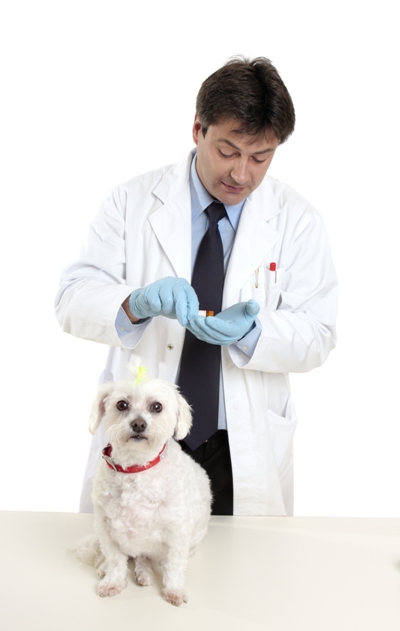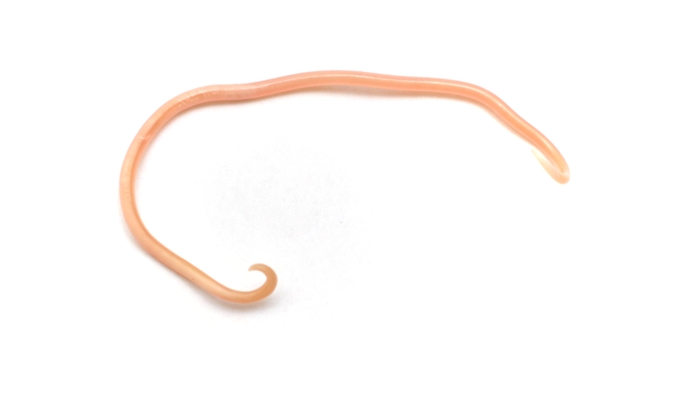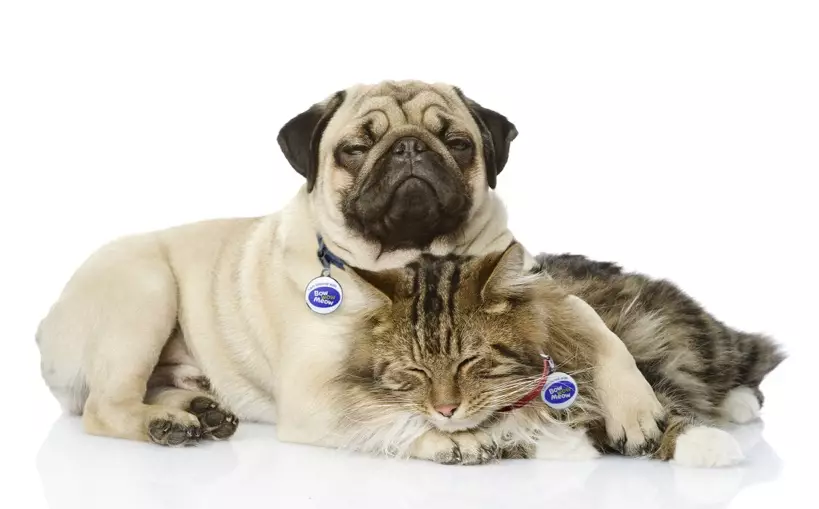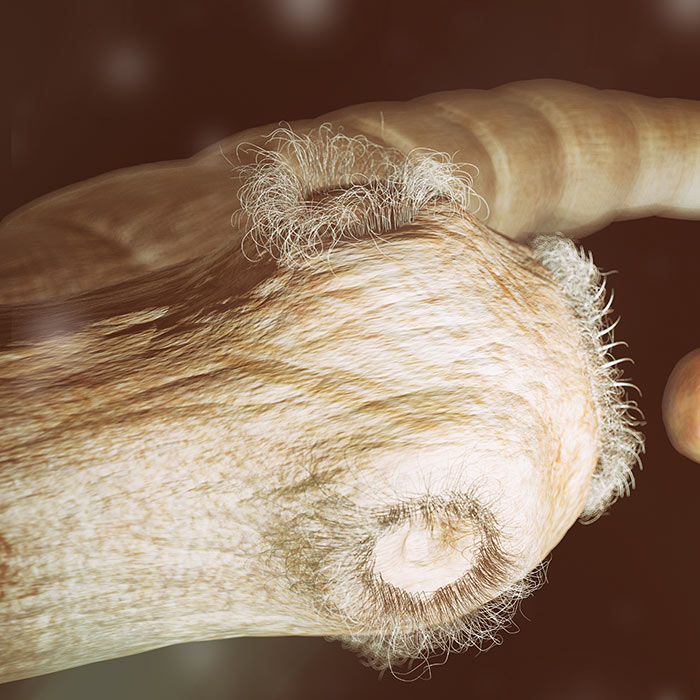Roundworms in dogs and cats
What is roundworm?
Roundworms, also commonly referred to as ‘worms’, are an extremely common parasitic worm found in both cats and dogs. While roundworms aren’t nearly as dangerous as other parasites like heartworms and paralysis ticks, they can still cause your cat or dog a great deal of sickness if they are left untreated.
 Roundworms can be picked up in the soil or in faeces and can be transferred from mother to puppy or kitten via the milk during feeding. The roundworms attach themselves to the intestinal tract and feed on their host. Adult roundworms will grow to between 9 and 18cm in length and tend to be a yellow-cream colour. They may be passed from the intestines if they fail to hold onto its walls.
Roundworms can be picked up in the soil or in faeces and can be transferred from mother to puppy or kitten via the milk during feeding. The roundworms attach themselves to the intestinal tract and feed on their host. Adult roundworms will grow to between 9 and 18cm in length and tend to be a yellow-cream colour. They may be passed from the intestines if they fail to hold onto its walls.
Roundworms are very common and it’s important to regularly administer deworming medication to keep them at bay. While not life-threatening, they can cause your pet to suffer from episodes of diarrhoea.
It is important that regular deworming takes place as roundworm can be passed from pets to human hosts. Children are especially susceptible to the ingestion of roundworm eggs. Once ingested, roundworms will hatch and attach themselves to the walls of the intestines, sometimes moving to the lungs. Although Roundworm infestations in humans can cause bouts of nausea, diarrhoea and mild stomach pain, the worms cannot reproduce in the human body.
Symptoms of roundworm in dogs and cats
Although many pets will show no symptoms at all, there are a few common symptoms that point to roundworm in both cats and dogs.
The most common symptom that can be observed in both cats and dogs is diarrhoea. Roundworms can cause your pet to pass very watery faecal matter, sometimes exhibiting a quantity of blood in the stool.
In the later stages, vomiting is a common occurrence. Although dogs and cats regularly vomit for a variety of reasons, roundworm will cause them to vomit more often and for no apparent reason. Animals suffering from diarrhoea and episodes of vomiting may also need to drink far greater quantities of water.
Kittens and puppies with roundworm infestations will usually develop bloated abdomens or pot-like bellies. Roundworms are more dangerous to a young, developing kitten or puppy than an adult; for young pets, dehydration is far more likely to cause serious complications.
Drastic weight loss is another common for pets that are badly affected by roundworms, paired with a decrease in the health of the coat.
Diagnosis of roundworm in dogs and cats
The process of diagnosis is relatively simple – your vet will observe the symptoms described above, ask you about your pet’s behaviour and take a stool sample for testing. Even if there are no real signs of roundworm after testing, your vet will probably prescribe deworming medication.
Treatment and management of roundworm in dogs and cats
Deworming medications or anthelmintic drugs will be prescribed to begin the deworming process. There no product available that will remove all types of parasitic worms but there are many products that will take care of a number of types.
There are many deworming products on the market and they can come in many forms. The vet may recommend that you buy tablets, chewables, liquids or a topical solution.

Prevention of roundworm in dogs and cats
Not many people realise that puppies and kitten are in fact born with roundworms, so it’s impossible to avoid them entirely. It’s for this reason that young pets should be dewormed early and well before being introduced to other animals.
- Puppies should be dewormed twice in the first two weeks and then monthly until 6 months of age.
- Kittens should be dewormed once a fortnight between the ages of 6 weeks and 3 months, then once a month until 6 months old.
Adult dogs and cats should be dewormed at least once every three months. If your pet comes into regular contact with other animals, is an outdoor pet or lives in a rural area, deworming them more regularly is advised.
Other preventative measures include:
- If possible, keep your cat or dog indoors and away from infected rodents or pet faeces.
- New pets should be treated for roundworm before being introduced to the household.
- Try to avoid your pets sharing litter boxes or eating each other’s faeces.
Remember, it’s fairly common for the family pet to pass roundworm on to children in the household. Deworm your pets at a young age, and often, to avoid illness. Keeping your pet worm-free will keep your family worm-free.
Commonly affected breeds
Roundworm is very common in all breeds of cats and dogs.
Interesting facts
- There are many types of roundworm – some are far more common than others, yet many types will happily find a home inside a human host.
- Roundworms are the most common internal parasites in cats.
- Some roundworm types can grow to more than 90cm in their adult stage.
- You can never completely avoid roundworm infestation in your pet. Considering both puppies and kitten are born with the parasites, the best way to prevent the worms from causing illness is to regularly medicate.
Bow Wow Meow Pet Insurance can help protect you and your pet should an unexpected trip to your vet occur.
- Find out more about our dog insurance options
- Find out more about our cat insurance options
- Get an instant online pet insurance quote
Bow Wow Meow is proud to have been awarded winner of Canstar’s ‘Most Satisfied Customers’ Award in the Pet Insurance category for both 2024 and 2025!
Bow Wow Meow is proud to have been chosen as Product Review’s Pet Insurance Award Winner every year from 2018 to 2025! This is based on 2,995 independent customer reviews (as at 21/01/2025), with an overall rating of 4.3*
Google Review rating = 4.5* (based on 968 reviews)
Trust Pilot rating = 4.6* (based on 531 reviews)
Bow Wow Meow is proud to have been chosen as Product Review’s Pet Insurance Award Winner every year from 2018 to 2025! This is based on 2,995 independent customer reviews (as at 21/01/2025), with an overall rating of 4.3*
Google Review rating = 4.5* (based on 968 reviews)
Trust Pilot rating = 4.6* (based on 531 reviews)
Bow Wow Meow has been chosen as a winner in the Finder Pet Insurance Awards 2024. Finder’s panel of experts analysed over 140 quotes to award our Ultimate Care Plan the winner of the “Pet Insurance – Value” category.
More information
http://www.petsandparasites.org/dog-owners/roundworms/
https://www.petmd.com/dog/conditions/infectious-parasitic/c_multi_ascariasis
https://www.petmd.com/cat/conditions/infectious-parasitic/c_ct_ascariasis









